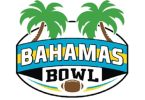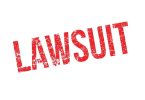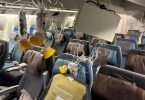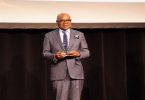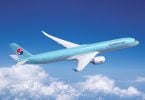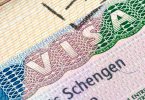As American, United and US Airways prepare to start collecting fees on every piece of checked luggage, including $30 round trip to check one bag and an additional $50 round trip to check a second, they are also getting ready to strictly enforce limits on carry-on baggage – which are commonly flouted — in hopes of minimizing delays and disruption as flights board. Battles with customers likely will ensue, and fliers will be peppered with baggage-rule announcements, adding more aggravation to the already trying travel experience.
AMR Corp.’s American and UAL Corp.’s United will station airline employees or hired contract workers at entrances to security screening lanes to intercept customers exceeding the carry-on limit of one bag small enough to fit in an overhead bin and one “personal item” like a purse or briefcase. That could slow passengers trying to get through security, and collecting the fee at ticket counters and airport curbs could make lines longer. Boarding airplanes could be slower, too, with heightened stress as customers maximize carry-ons to avoid fees and then push to board early enough to find space in overhead cabin bins.
American plans to more aggressively pull customers aside at boarding gates if the airline thinks they have too much carry-on baggage, as well as step up announcements about size limits in gate areas and on airplanes. United says it is still formulating its plans, but may try to gate-check bags for customers in later boarding groups before boarding begins for fully booked flights.
All three airlines say it’s possible that metal templates – which prevent larger bags from making it through X-ray machines – will be reintroduced. That’s a tactic that angered many customers in the past and was eliminated when the Transportation Security Administration took control of screening after the 2001 terrorist attacks.
“It’s something we’ve looked at in the past and may look at again,” says Mark Dupont, American’s senior vice president of airport services planning.
United is in favor of bringing back templates, says Senior Vice President Scott Dolan, and US Airways Group Inc. President Scott Kirby says a return of baggage templates is “likely” at some airports. While security checkpoints are controlled by the TSA, airlines can pressure the federal agency to allow templates if a checkpoint serves a single airline, or several airlines with the same policy on templates.
The TSA says it is “closely monitoring” the situation and could move staff if there’s a broad shift from checked bags to carry-ons. TSA spokesman Christopher White says the agency hasn’t yet received any requests to reinstall templates. It could be a hard sell. “Strictly enforcing baggage limitations is an airline function,” says Mr. White. “TSA is focused on security.”
US Airways says it will add staff to help with increased transaction time at ticket counters, but as customers adjust and check fewer bags, the problem should dissipate. One area of concern: With more carry-on bags, some flights that already have the maximum number of bags loaded in cargo holds may have nowhere to put more bags if overhead bins fill up at departure time.
“Carry-on rules will be enforced,” Mr. Kirby says. The airline does hope the new fee will result in customers packing lighter.
Less luggage will reduce airlines’ fuel bills a bit since the heavier planes are, the more fuel they burn. US Airways says its fuel costs per passenger, including international flights, now average $299 on a round-trip ticket, in line with estimates compiled in last week’s Middle Seat column. Its average round-trip fare is under $500, US Airways says.
That leaves the airline little choice but to impose fees, says US Airways Chief Executive Douglas Parker. “We think that it’s a change that is appropriate and required,” he says. The fee will stick unless US Airways finds consumers won’t fly an airline with a first-bag fee, Mr. Parker says. A more likely outcome is that rather than change airlines, travelers will change how they pack — toting less on trips and stuffing as much as they can into carry-on cases.
Another cost-saving change: US Airways is ending free sodas on its flights beginning in August. Coffee, bottled water and soft drinks will cost $2; alcoholic drinks will be raised to $7 from $5.
For many travelers, the most odious aspect of the baggage fee is the anticipated battle for overhead-bin space. To make sure they can find room, some customers already push their way through boarding queues. Passengers struggle to stuff large bags into small bins, and flight attendants often find themselves taking bags off planes and checking them to their destinations once bins fill up. All this will likely get worse, though the airlines say that the new fee won’t be collected in airplane cabins from customers who can’t find space for their allowed carry-on bags.
Bin battles can delay flights and leave customers frustrated. “This fee will just cause many people to drag all their worldly possessions into the cabin,” says Michael Patnode, an American customer from Boston angered by the new fee. He’d prefer more-realistic fares instead. “Any business that charges less than its costs deserves to go bankrupt, and it’s clear the airlines have cut their costs to the point that the product is completely unappealing,” he says.
American’s Mr. Dupont says much of the response his airline has received from customers after first announcing the fee has centered on concerns about the airport and boarding experience. American says it is prepared to deal with the changes and hopes bottlenecks won’t be created.
The airline’s baggage operation has struggled for many months. Through the first four months of this year, American has been worst among major airlines in baggage reliability, mishandling at least one bag for every 141 passengers, and worst among all U.S. airlines in on-time dependability. In 2007, only US Airways was worse than American among major carriers in the on-time category.
American’s first-bag fee, which applies to travel in the U.S. and Canada, went into effect for tickets bought Sunday or later. American says it will affect more than 24 million fliers annually, or roughly one-third of domestic passengers. (About half of its customers don’t check bags.) Elite-level frequent fliers or people buying full-fare coach tickets or first-class tickets are exempt, as are passengers connecting to international flights and active-duty military personnel.
The rules are complicated — even Mr. Dupont had to check when asked on how the fee applied to so-called code-share arrangements, when one airline sells another’s seats as its own. (The rules of the first airline you fly apply, regardless of which airline sold you the ticket.)
All told, American will increase revenue by more than $350 million annually with the fee. That’s a small drop in the oil barrel, since it expects to pay $2.6 billion more for fuel this year than in 2007, but the carrier says it hasn’t been able to raise fares enough to cover its costs, so it’s instituting new fees.
American says it hopes to minimize the impact on check-in lines at airports by making its kiosks able to collect fees with a credit-card swipe. Skycaps, too, will be able to collect baggage fees, and the $2 fee to check bags curbside with a skycap will be dropped.
While United and US Airways both matched American’s first-bag fee late last week, other airlines have resisted, at least so far. That could change any day, especially if competitors see customers paying the fee with no drop in ticket sales. But some carriers may see the first-bag fee as an opportunity to differentiate service at a time when it’s hard to distinguish between U.S. airlines.
Continental Airlines Inc., for example, tried to set itself apart from the pack by continuing to serve meals on flights after 2001 when other airlines were switching to buy-on-board sandwiches and snacks. Continental did match the $50 round-trip fee for checking a second piece of luggage, but not the first-bag fee yet. A spokesman declined to comment on baggage fees.
Delta Air Lines Inc. last week said it didn’t plan on charging for the first bag. “This would not be good for customers, and it could be operationally difficult as customers try to bring all of their luggage onto the aircraft,” says spokeswoman Betsy Talton.
wsj.com
(eTN): The carry-on-baggage police will soon be out in force at airports | re-post license | post content




